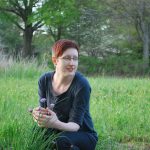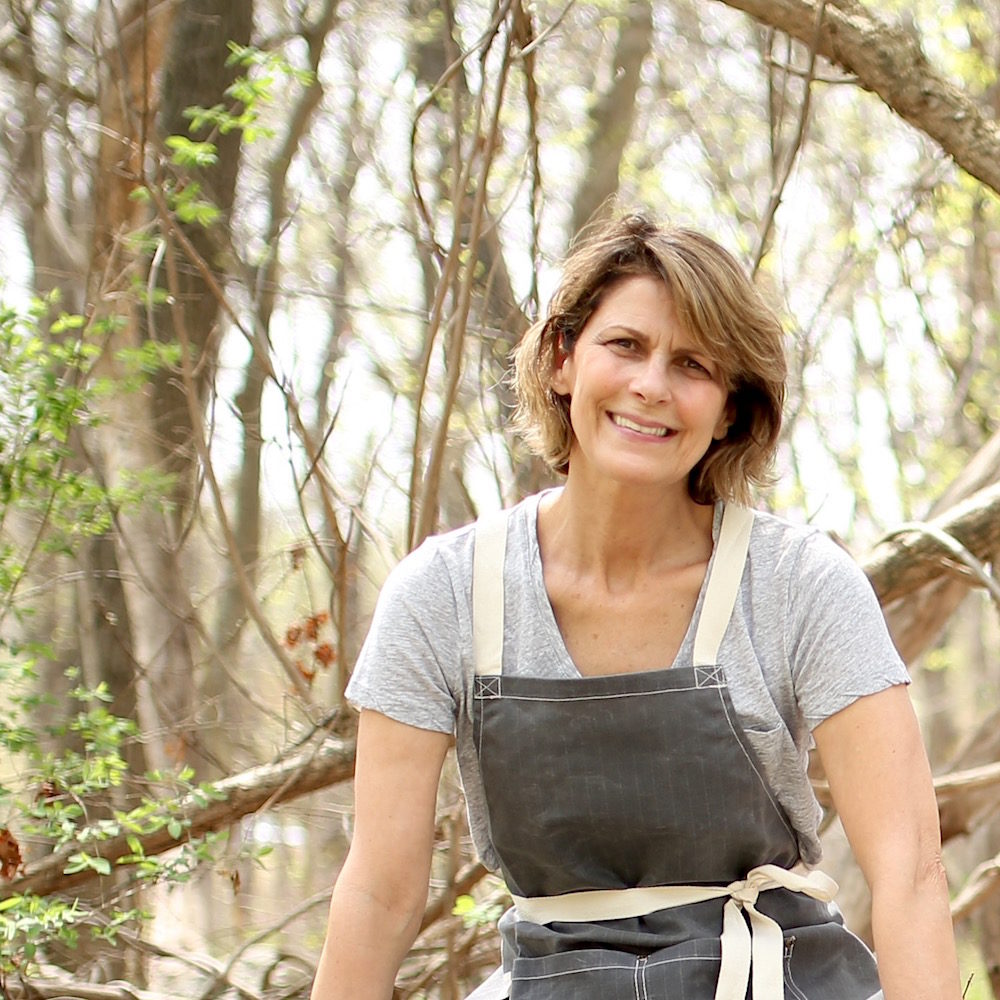
Teacher Feature: Marlene Adelmann
Today, we would love to introduce you to someone we hold very dear here at the Herbal Academy: our Founder and Director, Marlene Adelmann! Little did Marlene know that the first local herb classes she taught in the Boston area would one day grow up to be a global online herb school.
We’re so glad that she has followed her heart and created such a special place for the herbal community, a place where students can feel welcome and study the wonderful, wide world of herbalism no matter where they live!
Interview with Academy Founder Marlene Adelmann
Marlene sat down with us to share her own herbal path and dedication to lifelong learning, herbs, and the special place that herbal education can have in creating healthy futures for our children, and she has shared some of her best advice to new herbalists.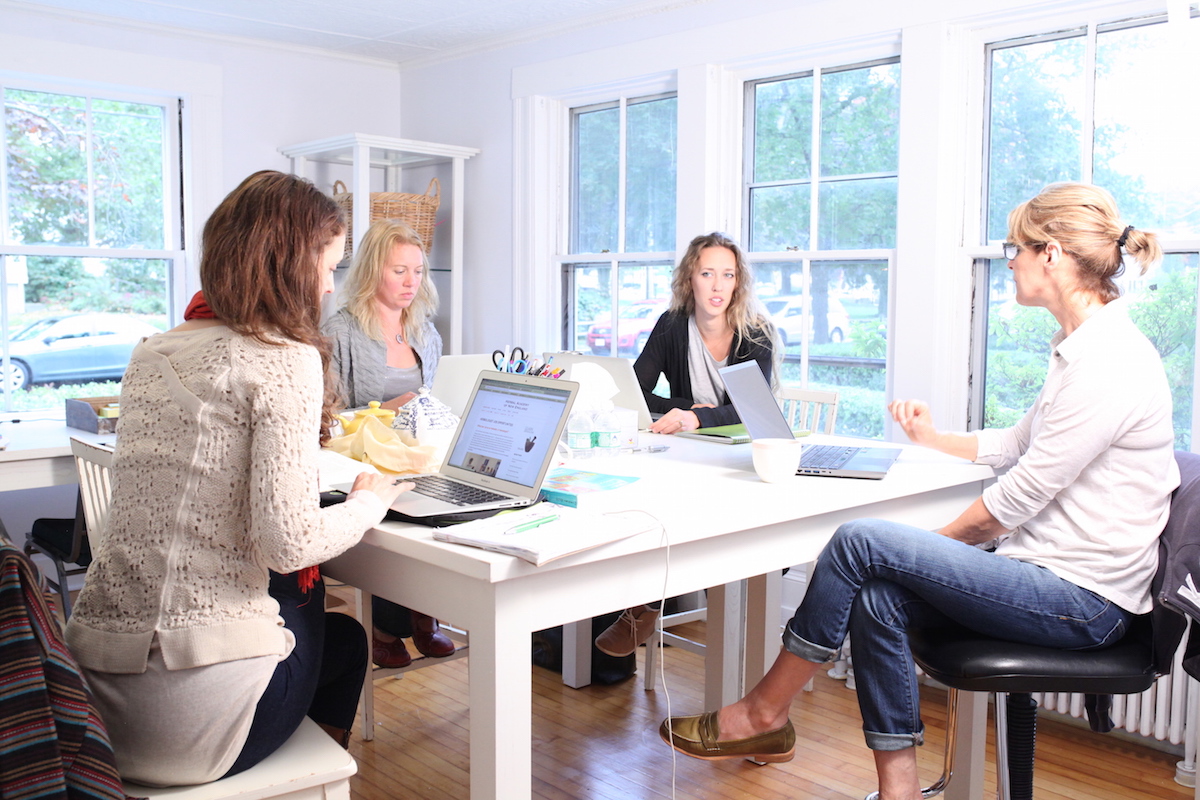
Herbal Academy: You share the full version of the Academy’s story in the Entrepreneur Herbal Course, but will you share a little about the beginnings of the Academy here? Did you have any inkling when you offered your first classes that the Academy would evolve into a global online school?
Marlene Adelmann: The short answer is no… not in my wildest dreams! As I share with Entrepreneur students, the Herbal Academy—at that time our name was the Herbal Academy of New England—first opened its doors in 2011 with a 12-week herbalist certification class. We began in a little lake cottage with just a handful of students and a few herbalists. We organized the cottage so that everyone could be comfortable, and we welcomed our students with steeping pots of herbal tea and plenty of learning tools.
For those of us who have attended herbal schools and herbal conferences, we know that there is a very special bonding that occurs between the individuals who enter into this field of study. There is certainly a sense of camaraderie, but there is also a sense of being a part of something much bigger and profoundly important. There is an empowerment we feel as we navigate through the complex plant kingdom, learning to use what is offered there. Our intention is to foster and support this deeper sense of belonging as we work with our students at a very rigorous academic level. Combining science, art, and spirit creates a true harmony— a balance that is not often achievable in our fast-paced contemporary lives.
This is a journey that is meaningful and purposeful. You would not think it possible to recreate that dynamic online, but in many ways we have. We are very serious about presenting factual information and the latest research on herbs, but we are also wowed by the beauty and mystery that lies within every single plant. We work very hard to convey that beauty in our courses through photography, graphic illustrations, and in our own words. Most importantly, it is through the spirit of gratitude and awe that we connect and share what we believe everyone needs to know.
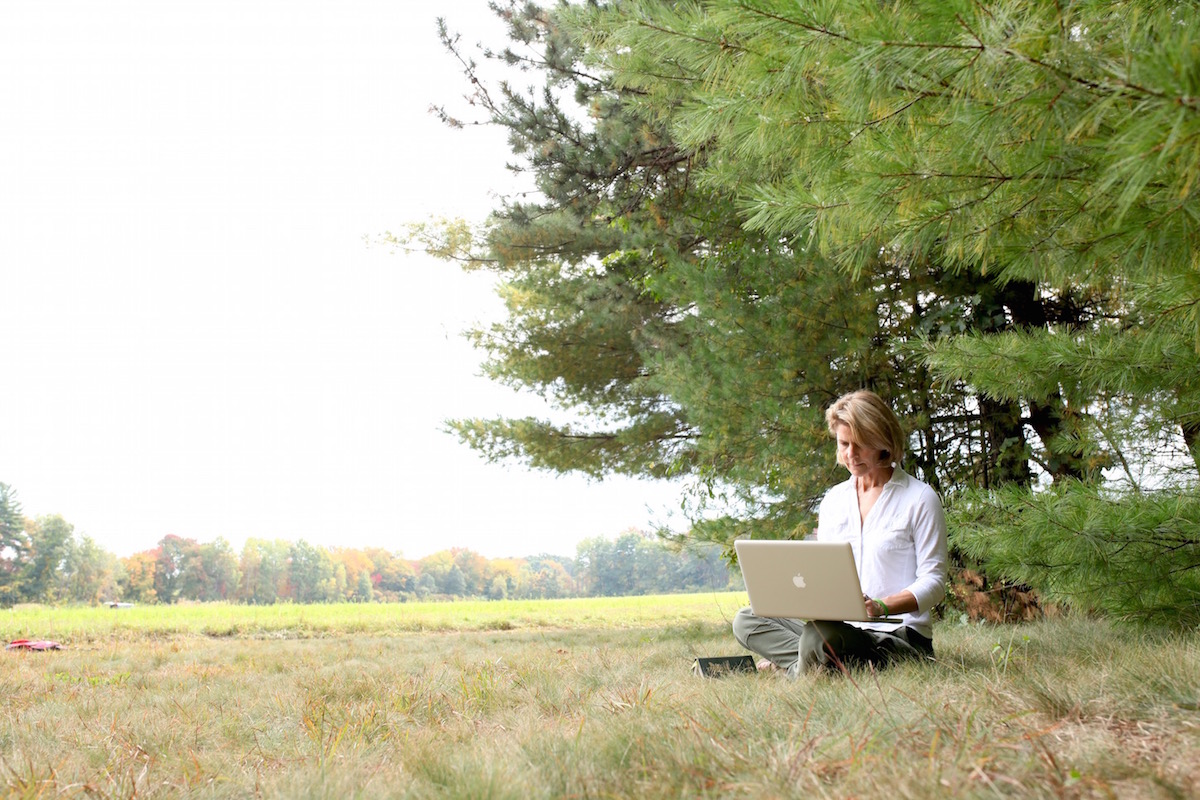
Herbal Academy: You have studied with Susun Weed and Rosemary Gladstar, and “continue(s) to practice plant medicine through ongoing correspondence courses and teaching others.” How important do you think it is for herbalists to be lifelong learners? What is your favorite way to continue your herbal education and continue your professional studies?
Marlene Adelmann: Yes, these two women have been trailblazers for so many, and I am inspired by their work daily. Indeed, I may not have found my way here if it were not for these two bright stars. My hope is to give back and to honor the many women and men who have shared their knowledge with us. If the Academy can be just the smallest flicker of light that carries on this work in their great shadow, I will be most pleased.
This is a very interesting question because I just can’t imagine ever knowing everything there is to know about even one single plant in my lifetime! These things are complicated, to say the least. I will say, though, that you can very quickly begin to understand a plant and use it in many ways to enhance your health and environment, but there will always be more to learn. It’s very important for herbalists to have the mindset that their journey will never end. To cap off our education—formal or informal—will only set an undesirable limit to our experiences, opportunities, and possibilities.
I am constantly learning at the Academy, too. The Academy team has some of the brightest minds in herbalism right here working together. On top of that, our students come into the courses with loads of curiosity and their own experiences and adventures. They share their knowledge and wisdom in the live forums, and we all grow together. We are bombarded in a very good way!
Seminars, workshops, and conferences are wonderful ways to learn and connect with others as well. But perhaps my favorite way to continue my education is through teaching and writing. It may take me days to research my subject matter and hours to write it up, but the process is enlightening. The most enjoyable way of learning is to delve in and lose myself in my work
Herbal Academy: In your bio, you mention that your passion for herbs actually first began through culinary herbs. How did you begin exploring herbs outside of the kitchen? Was there a particular “ah-ha!” moment when you were introduced to the ways culinary herbs can also be used for health?
Marlene Adelmann: I don’t remember having a specific ah-ha moment because loving herbs and plants and using them in creative culinary dishes was just so natural for me. A lot of herbalists will tell you that they were aware at a very young age that there was something very special about nature, and they felt as though nature spoke to them. It is my belief that nature speaks to all of us, we just have to slow down a bit and listen. Herbalists are not so special that they are the only ones that nature calls out to. They are, however, much more likely to hear what is being transmitted and far more likely to talk back! The conversation which is entered into here is herbalism.
As a home cook and professional catering chef, I also tend to consider the health benefits of what I’m preparing in the kitchen, and I always try to up the ante as much as I can. I guess I’m more of a designer chef than anything else. If I have a particular health issue or I just want to boost my immune system, I design my meals to address that. Adding herbs to the food is a grand slam bonus in my opinion. Working with herbs in the kitchen certainly did spike my interest and propelled me into the wonderful world of healing herbs and their uses, adding new material to my designer arsenal.
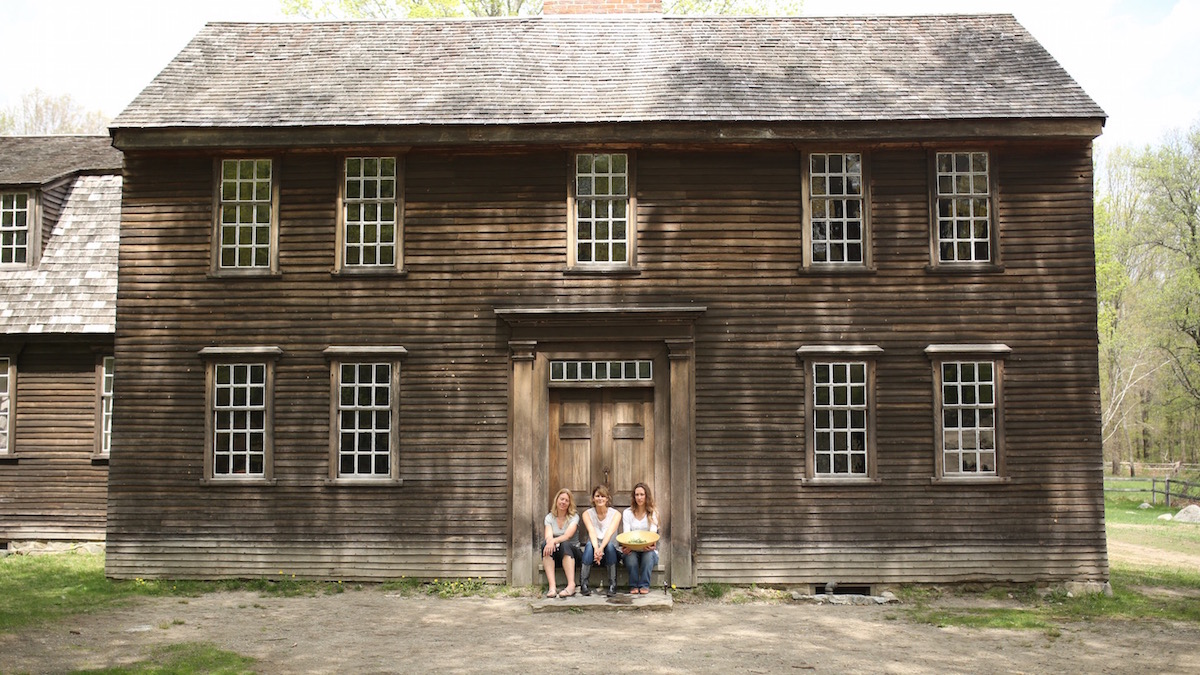
Herbal Academy: Is there anything you wish that a more experienced herbalist had said to you when you were first starting out? Or was there something particularly helpful that someone DID tell you?
Marlene Adelmann: I remember having a chat with one of my teachers about learning and practicing with herbs, and I asked her what she liked to grow. She said that growing was not her calling. I was taken aback because I couldn’t wrap my mind around that. Huh, doesn’t every herbalist grow stuff? The answer to that is “no,” and the wisdom behind understanding your place in this field is immensely insightful.
We don’t have to do it all. It’s just that simple.
We can be as involved as we wish and know to be. We don’t have to plant out an acre of herbs, harvest, dry, and produce. We don’t have to make our own tinctures, teas, and soaps. We don’t have to teach classes, run a seminar, publish heady articles, and book it out to the wilderness to forage. We can take this as far as we wish, and there is real freedom in knowing that. Herbalists come in all shapes and sizes. The question is: where do you want to be?
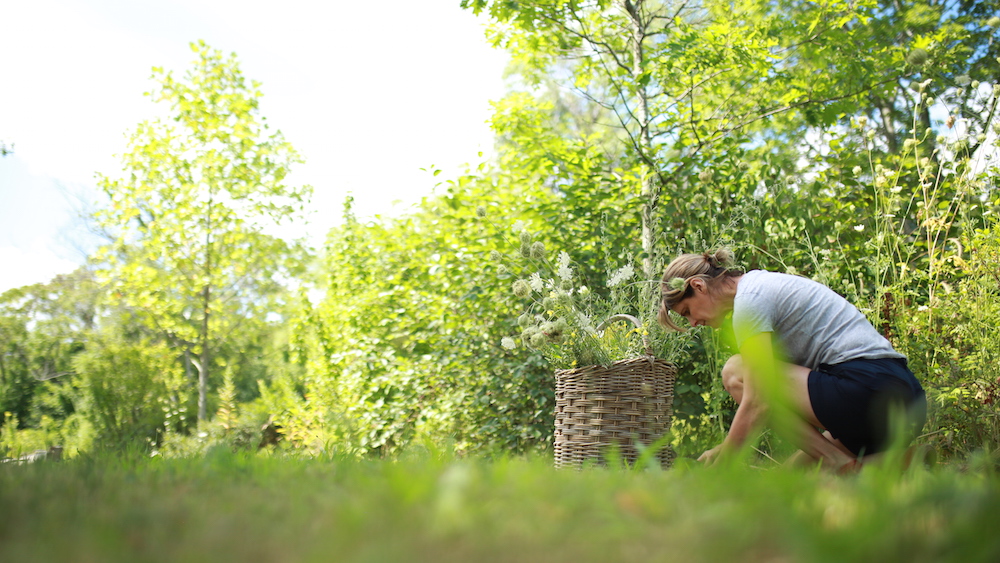
Herbal Academy: One of your goals for the Herbal Academy is to sponsor social programs that help the most vulnerable citizens of our society—our children—and many of the blog posts published by the Academy focus on introducing children to herbalism. How do you believe a basic herbal education or herbal literacy benefits children?
Marlene Adelmann: Oh, my goodness, let me count the ways! Life could be so much sweeter if we could all grow up at Rosemary Gladstar’s knee. Please adopt me, Rosemary! Using what is so available and helpful in our natural environment should be inherent, almost an impulse—like drinking water when you are thirsty… herbs are that important. I didn’t have a mentor growing up, but I can recall my parents using techniques that an herbalist would use today so that makes me think that generations past were far more in tune to the gifts of plants and the natural way of doing things than we are today.
Escorting children in nature and passing down the knowledge gained from our own studies and practices is a very precious gift. Children who are introduced to nature in this way at an early age will have the benefit of using herbs throughout their lives. They will certainly gain from the many health benefits of using herbs. They will also come to understand how important their intimate connection with the earth is, and perhaps they will care a whole lot about protecting it. Without sounding too last century or generational, I would say that children today spend far too much time in front of TV and computer screens. I’ve even seen infants playing with cell phones. Yikes! I’m not suggesting that these are all bad because I do believe that technology is a good thing for the most part. However, during the formative years and beyond, children benefit greatly from having real interactions with people and with their natural environments. I can’t think of anything more real than learning how to observe, protect, and use what is growing in nature. When this becomes second nature to our children, it will be something that is preserved and passed on.”
Thank you for following your passion and helping to guide so many of us on our herbal journeys, Marlene! It is our hope that the Herbal Academy will bring many new herbal trailblazers and visionaries together to create a vibrant, thriving herbal community that practices both the art and the science of herbalism.
If you enjoyed this chance to peek behind the scenes at the Herbal Academy, be sure to look for more interviews with our Associate Educators in the coming months as we introduce more of the brilliant herbalists that have come together to make our Herbal Learning Courses, The Herbarium, and the blog such a wonderful online herbal community.

